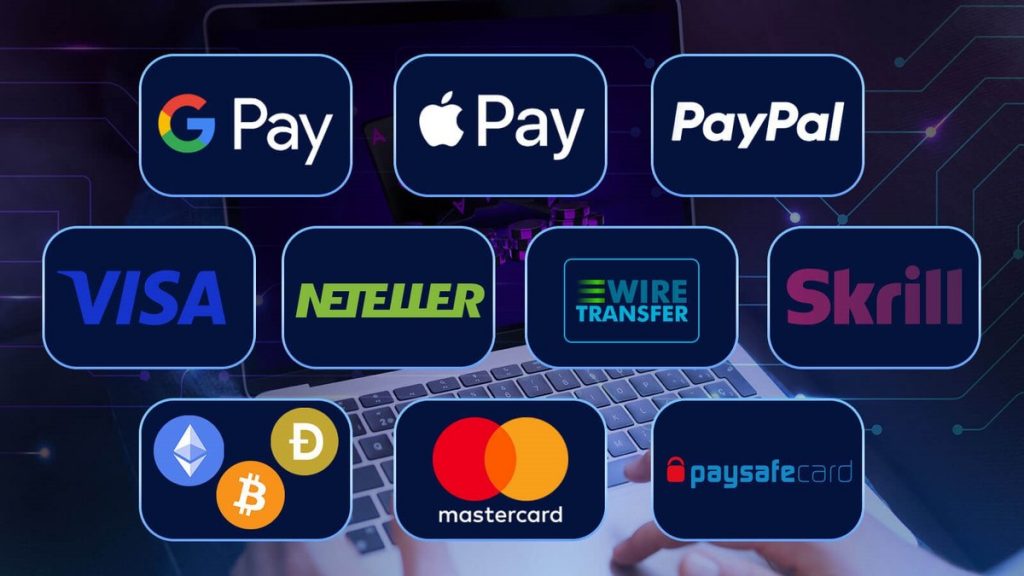The landscape of online casinos demands meticulous attention to payment considerations, which is pivotal for a seamless user experience. This article offers a detailed roadmap that dissects crucial elements which govern the financial interplay between casinos and patrons.
From ensuring robust security measures to optimizing transaction efficiency and user-friendliness, the insights provided here equip readers with the necessary tools to navigate the intricacies of online payments.
1. Payment method diversity
Payment method diversity caters to a global audience with varied preferences and financial practices. This variety ensures that users can engage with services effortlessly regardless of their geographical location or banking habits. Traditional options such as debit cards offer familiarity and widespread acceptance. However, the digital age introduces alternatives like e-wallets and cryptocurrencies, celebrated for their speed and enhanced security features.
Integrating a broad spectrum of payment methods addresses convenience and trust. Users feel valued and secure when they see their preferred transaction method, which automatically fosters a sense of inclusivity. Moreover, this diversity supports the casino’s reputation, showcasing its commitment to accommodating a diverse user base and staying up-to-date with technological advances.
Yet, including multiple payment options requires a strategic approach, ensuring each method aligns with the platform’s security, efficiency, and regulatory compliance standards. Casinos face the complex challenge of adhering to international financial regulations while simultaneously focusing on fraud prevention and user verification to ensure that every transaction meets legal standards and upholds the trust and safety of its user base.
2. Minimum and maximum thresholds
Setting appropriate minimum and maximum thresholds for deposits and withdrawals is a balancing act. Online casinos meticulously calibrate these limits to cater to a broad spectrum of players while maintaining operational integrity.
Minimum thresholds ensure the casino’s viability by covering transaction costs and maintaining a profitable business model. For instance, a $10 minimum deposit casino in the USA appeals to casual players, offering an accessible entry point without compromising the platform’s financial stability.
Maximum limits, conversely, play an essential role in:
- Mitigating risk by capping the amount of money transacted at a time.
- Promoting responsible gambling by preventing excessive spending.
- Ensuring compliance with anti-money laundering regulations.
These thresholds are not arbitrary figures but the result of extensive market research, understanding player demographics, and aligning with industry standards. Casinos must also be agile, ready to adjust these limits in response to market trends, regulatory changes, or operational needs.
3. Processing speeds
The velocity of transaction processing is a major component of the player experience. Prompt deposit processing times ensure players can engage in gameplay without disruptive delays. For withdrawals, swift processing equates to quick access to winnings, which significantly enhances player satisfaction and trust in the platform.
Online casinos harness advanced technologies and robust banking partnerships to streamline transaction processes. The fastest ones deploy automated systems for verification and processing, which minimizes the potential for human error and delays. Players must also consider the processing time of their chosen payment provider, over which no online casino typically has control. This duration varies depending on the method selected: eWallet and cryptocurrency options tend to be the fastest, while more traditional options like bank transfers or debit card transactions may take longer.
4. Fees and charges
Understanding fees and charges helps ensure transparency and trust in financial transactions for both online casinos and their users. While often small, these costs can significantly influence a player’s experience and the casino’s reputation.
Types of Fees and Their Impact
- Transaction Fees: These fees are often imposed by payment processors, and they cover the cost of transferring funds. While casinos sometimes absorb these costs, they may pass them on to users, especially for small transactions or specific payment methods.
- Currency Conversion Fees: Players engaging in international platforms may encounter these fees. Casinos offering multi-currency support aim to minimize this burden, yet players must be aware of potential charges when converting winnings back to their local currency.
- Withdrawal Fees: Some casinos charge a fee for processing withdrawals. This practice varies widely, with many platforms opting for these costs themselves to maintain a competitive edge.
Online casinos tend to minimize payment processing fees for their players through various strategies. Firstly, they negotiate with payment providers to secure lower transaction fees, as seen in the case of merchant account providers like eMerchantBroker and Host Merchant Services. Secondly, many online casinos are turning to cryptocurrency payment gateways, which offer lower transaction fees and added benefits like speed, security, and fraud prevention. Lastly, some online casinos choose to absorb a portion of the transaction fees themselves. For example, a casino may receive $95 and pay $5 as a fee on a $100 deposit, effectively covering the transaction cost for the player. This practice is part of a broader strategy to enhance customer satisfaction and loyalty, although it’s important to note that players ultimately pay for these fees indirectly through mechanisms like less generous bonuses or higher wagering requirements.
__
Writer: Charlon Muscat

